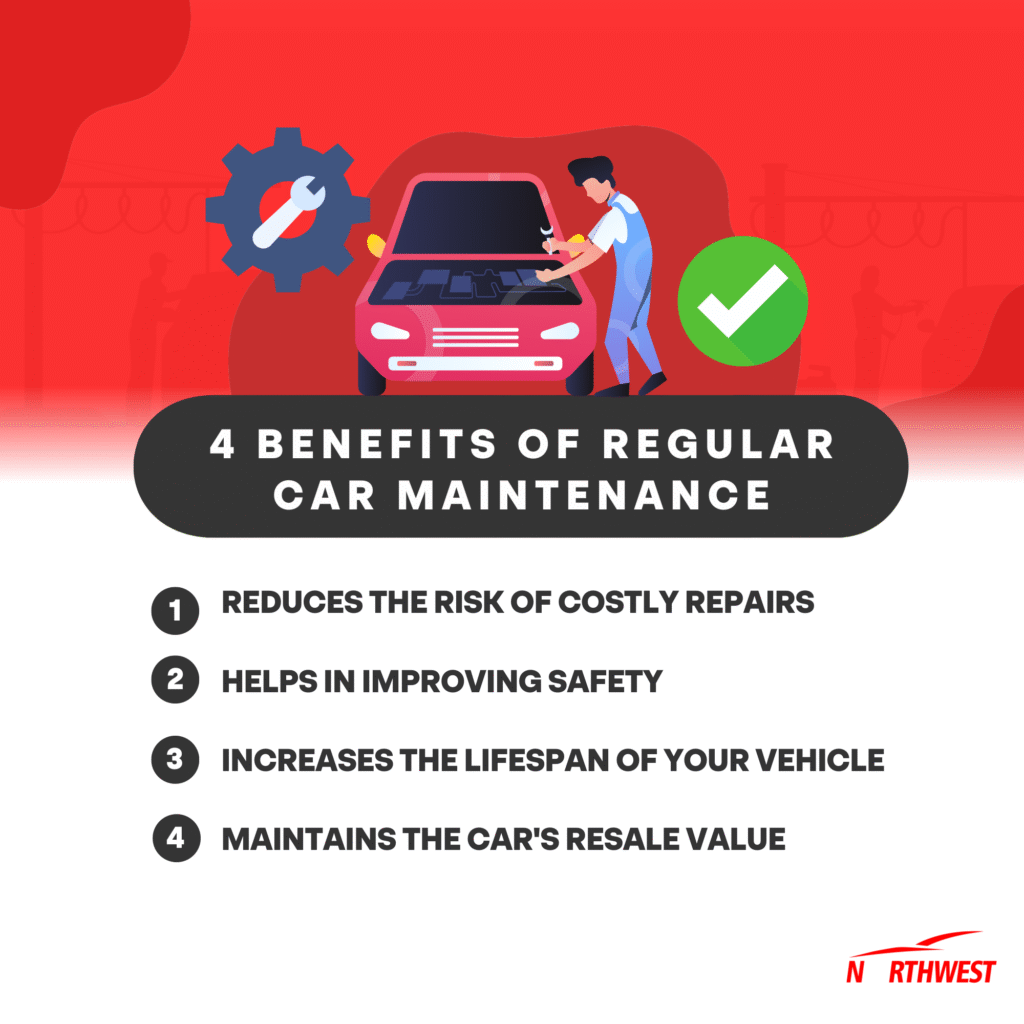Keeping your car running smoothly requires more than just filling up the gas tank. Regular maintenance is crucial for ensuring your vehicle performs at its best, remains safe to drive, and retains its value over time. Neglecting scheduled services can lead to a cascade of problems, from decreased performance to costly repairs and even safety hazards. This article will delve into the importance of regular car maintenance, outlining the benefits and potential risks associated with both adhering to and ignoring service schedules.
Importance of Regular Car Maintenance
Car manufacturers recommend specific service intervals based on factors like mileage, driving conditions, and engine type. These recommendations are not arbitrary; they represent a carefully calculated schedule designed to keep your vehicle in optimal condition. Regular maintenance involves tasks such as oil changes, filter replacements, fluid top-ups, tire rotations, and inspections of various components. Each of these tasks plays a vital role in maintaining the overall health and functionality of your car.
By adhering to these service intervals, you proactively address potential issues before they escalate into major problems. This preventative approach saves you money on costly repairs down the line and ensures your vehicle continues to operate reliably. Ignoring recommended maintenance can lead to premature wear and tear on critical components, ultimately compromising your car’s performance, safety, and longevity.
Benefits of Scheduled Car Services

Scheduled car services offer a multitude of benefits that extend beyond simply keeping your car running smoothly.
Enhanced Performance and Reliability
Regular oil changes lubricate engine parts, reducing friction and wear. Filter replacements ensure clean air and fuel reach the engine, optimizing combustion and performance. Fluid top-ups maintain proper levels for cooling, transmission, and braking systems, ensuring optimal functionality. These routine tasks contribute to a smoother, more responsive driving experience and minimize the risk of unexpected breakdowns.
Improved Fuel Efficiency
Properly maintained engines burn fuel more efficiently. Air filters that are clean allow for better airflow into the engine, while spark plugs in good condition ensure efficient ignition. Regular tire rotations and pressure checks also contribute to improved fuel economy by reducing rolling resistance. By adhering to service schedules, you can potentially save money on fuel costs over time.
Extended Vehicle Lifespan
Regular maintenance is an investment in your car’s longevity. By addressing potential issues early on, you prevent them from developing into major problems that could shorten your vehicle’s lifespan. A well-maintained car retains its value better and is less likely to require costly repairs in the long run.
Car Performance and Efficiency
Regular maintenance directly impacts your car’s performance and efficiency.
Engine Health
Oil changes lubricate engine parts, reducing friction and wear. Regular filter replacements ensure clean air and fuel reach the engine, optimizing combustion and power output. Spark plug inspections and replacements ensure efficient ignition, contributing to smooth acceleration and optimal engine performance. Neglecting these tasks can lead to decreased horsepower, sluggish acceleration, and increased engine wear.
Transmission Function
Transmission fluid lubricates and cools the transmission system, ensuring smooth gear changes and preventing damage to internal components. Regular fluid changes and filter replacements maintain proper lubrication and cooling, extending the life of your transmission and ensuring seamless shifting. Ignoring these services can result in rough shifting, slipping gears, and costly transmission repairs.
Brake System Performance
Brake pads and rotors wear down over time, requiring replacement to ensure safe and effective braking. Regular brake inspections and fluid flushes maintain optimal brake performance, reducing stopping distances and preventing brake failure. Neglecting brake maintenance can lead to reduced braking efficiency, increased stopping distances, and a heightened risk of accidents.
Safety Hazards of Neglecting Maintenance

While regular car maintenance primarily focuses on performance and longevity, it also plays a crucial role in ensuring your safety on the road.
Tire Issues
Underinflated or worn tires compromise traction and handling, increasing the risk of skidding or losing control during braking or cornering. Regular tire pressure checks and rotations ensure even wear and optimal grip, contributing to safer driving conditions. Neglecting these tasks can lead to blowouts, punctures, and accidents.
Brake Failure
Worn brake pads and rotors significantly reduce braking efficiency, increasing stopping distances and putting you at risk in emergency situations. Leaking brake fluid compromises the entire system, leading to a complete loss of braking power. Regular brake inspections and fluid flushes are essential for maintaining safe and reliable braking performance.
Steering System Malfunctions
Worn steering components can lead to loose or unresponsive steering, making it difficult to control your vehicle, especially at high speeds or during maneuvers. Regular steering system inspections and fluid top-ups ensure proper alignment and responsiveness, contributing to safer handling and maneuverability.
Maintaining Vehicle Value
A well-maintained car retains its value better than a neglected one.
Resale Appeal
Potential buyers are more likely to pay a premium for a vehicle with a documented service history. Regular maintenance demonstrates that the car has been cared for properly, reducing their risk of inheriting costly repairs down the line. A clean Carfax report and detailed service records can significantly increase your resale value.
Financing Options
Lenders often consider a vehicle’s maintenance history when assessing loan applications. A well-maintained car with regular service records is viewed as less risky, potentially leading to lower interest rates and more favorable financing terms.
Conclusion
Regular car maintenance is not just a suggestion; it’s an essential investment in your safety, performance, and the longevity of your vehicle. By adhering to recommended service intervals, you proactively address potential issues, prevent costly repairs, and ensure your car continues to operate at its best. Remember, neglecting maintenance can lead to decreased performance, increased repair costs, and even safety hazards. Prioritize scheduled car services to enjoy a smoother, safer, and more reliable driving experience for years to come.



